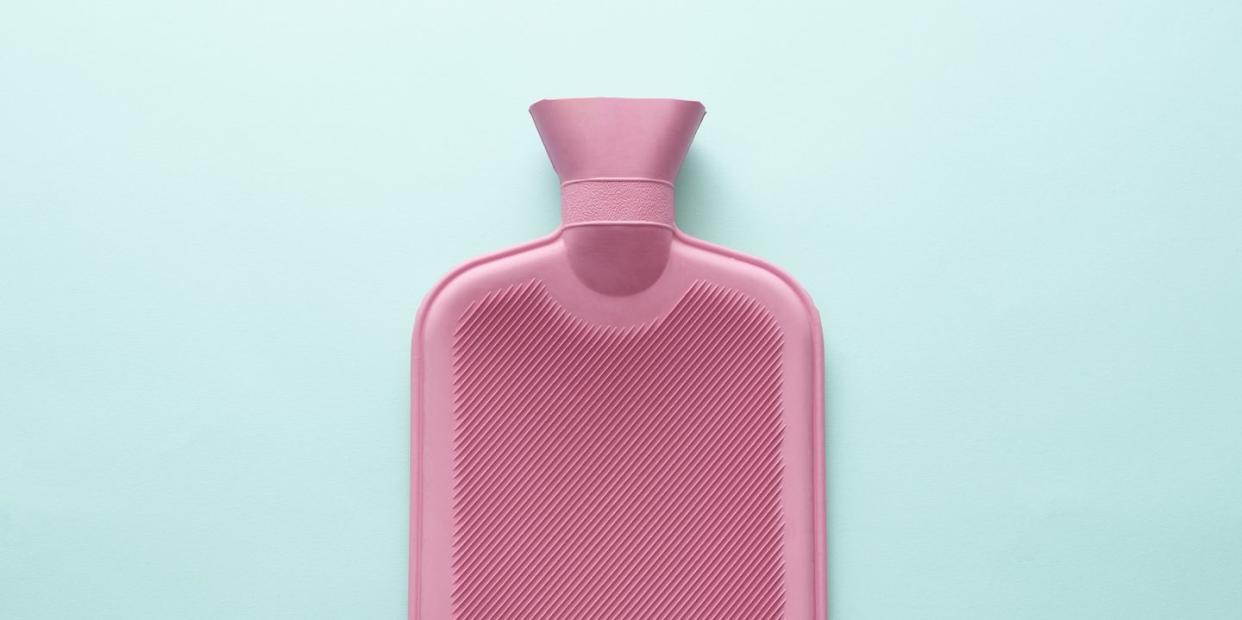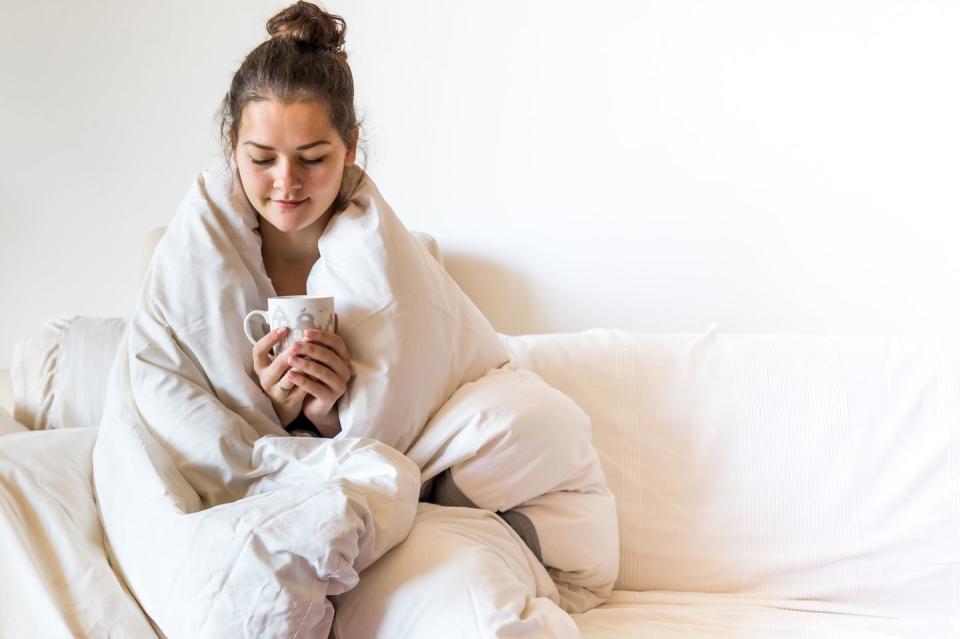Is it normal to feel cold ALL OF THE TIME?

Are you the friend who’s always shivering, despite wearing three jumpers and a cardigan underneath a toasty puffa jacket? Or the flatmate who's always asking "Can we just stick the heating on for a bit?"? A cold intolerance can stem from a few possible factors, explains personal trainer Jason Briggs, of Shoe Hero – be it from your brain not distributing signals effectively enough to heat your body, to easily managed lifestyle choices.
“The hypothalamus (an area of the brain which regulates temperature) sends messages to different parts of your body to either cool down or heat up," he says. "It’s a busy part of the brain; also controlling the release of hormones, appetite, adjusting emotional responses, and managing sexual behaviour." Because the hypothalamus also controls your appetite, it determines your metabolism, which is an important part of your body’s regulation, and has to function efficiently to burn calories and create heat for your body.
Gender can also play a part too, Briggs adds, "A study published in the journal Nature in 2015 found that while men can happily work at 71.6 degrees Fahrenheit, women were found to need the thermostat adjusted about 5 degrees higher to feel the same [level of comfort]."

Equally, you could be feeling cold because of a lifestyle choice. Not exercising enough is one possible cause – regular workouts help your heart and lungs to operate more efficiently, delivering oxygen and vital nutrients around the body, keeping you warmer – as is a lack of sleep. Establishing a healthy sleep pattern is a great start, as a broken one will result in your body not fully recharging – a side effect of which is feeling cold due to lack of energy. Missing out of fundamental vitamins, like iron and B-vitamins (figures show that around a third of women are low in iron often due to heavy periods) can also play a part.
If you've noticed feeling consistently chilly, Briggs recommends keeping a diary of your day to day temperature and documenting when turning cold affects you the most. "Record how it makes you feel too (sleepy, anxious, lethargic) and whether certain things trigger it. Establishing the causes is the first step to guide you toward the right diagnosis."
He adds, "If you’re concerned it’s something more serious than metabolism or a lack of iron, then there are some signs to look out for," Briggs adds. "Fatigue or weakness, light-headedness when cold, pale skin, and dry brittle hair or nails are usually a sign of underlining health issues." So, book in with your GP.
Like this article? Sign up to our newsletter to get more articles like this delivered straight to your inbox.
You Might Also Like

 Yahoo News
Yahoo News 
